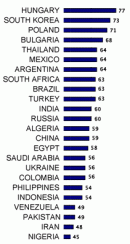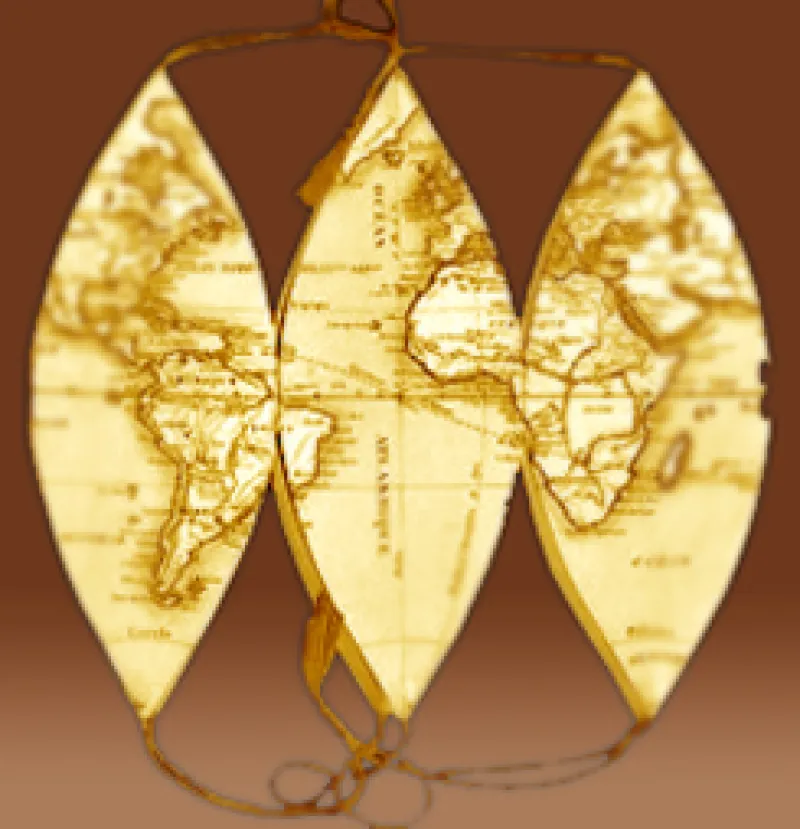
However, while Turkey picked up some points in its economic score, it saw a weakening in its government and society scores. Uncertainty over the politically and religiously sensitive presidential succession issue continued, revealing the deepening rift between Turkey’s religious and secular forces. The ruling Islamist Justice and Development Party (AKP) is nowhere near agreement on who should be nominated to replace President Ahmet Necdet Sezer in the May 2007 election. The secularist opposition, which counts Sezer as one of its own, fears that the AKP will choose a president who would approve religiously oriented measures previously vetoed by Sezer and appoint “Islam-sensitive” judges to top judicial positions. Left-wing political leaders outside the main opposition Republican People’s Party (CHP) have called for a unification of secularist forces against the AKP, but CHP leader Deniz Baykal has made it clear that he believes all anti-AKP forces should join his party. Given the dismal record of attempts to unify the opposition, it is unlikely that differences such as this will be bridged.
Meanwhile, the release of a set of strong economic indicators in Russia in time for the high-profile July 15-17 G8 summit, including an agreement with the Paris Club of creditors, encouraged top officials to continue their ambitious rhetoric about Russia’s future direction and boosted Russia’s self-confidence on the international stage. First Deputy Prime Minister Dmitri Medvedev, widely seen as a leading contender for the presidency, outlined a vision of Russia as a strong corporatist state in a public speech. He wants the state, bolstered by Russia’s dominant position as an energy power, to help Russian corporations grow, compete, and reach out to international markets. This plan for Russian economic development is likely to dominate the rest of the present Russian administration and possibly the next.
Russia also improved its geostrategic position, despite the failure of US-Russian negotiations on a bilateral agreement necessary for Russia’s accession to the World Trade Organization during the G8 summit. Earlier, the June 15 summit of the Shanghai Cooperation Organization highlighted Russia’s independent and forceful foreign-policy course. The summit reinforced strong Russo-Chinese ties and demonstrated strengthening Russo-Iranian relations. Russia and Iran, rhetorically at least, moved closer on the nuclear crisis and global energy. President Vladimir Putin and Chinese President Hu Jintao also expressed their determination to raise the SCO’s profile.
The DESIX, released yesterday, features updated monthly ratings on political stability in 24 emerging markets nations.





